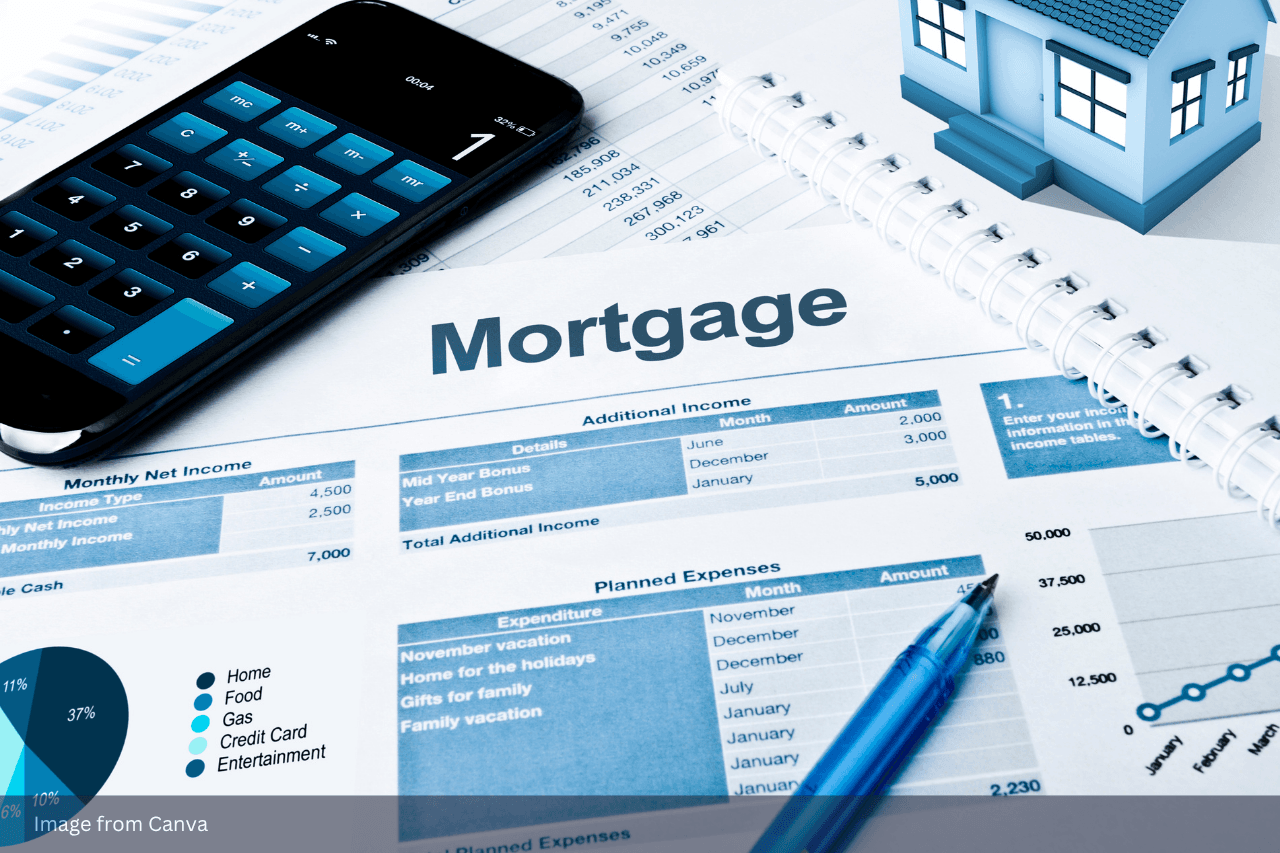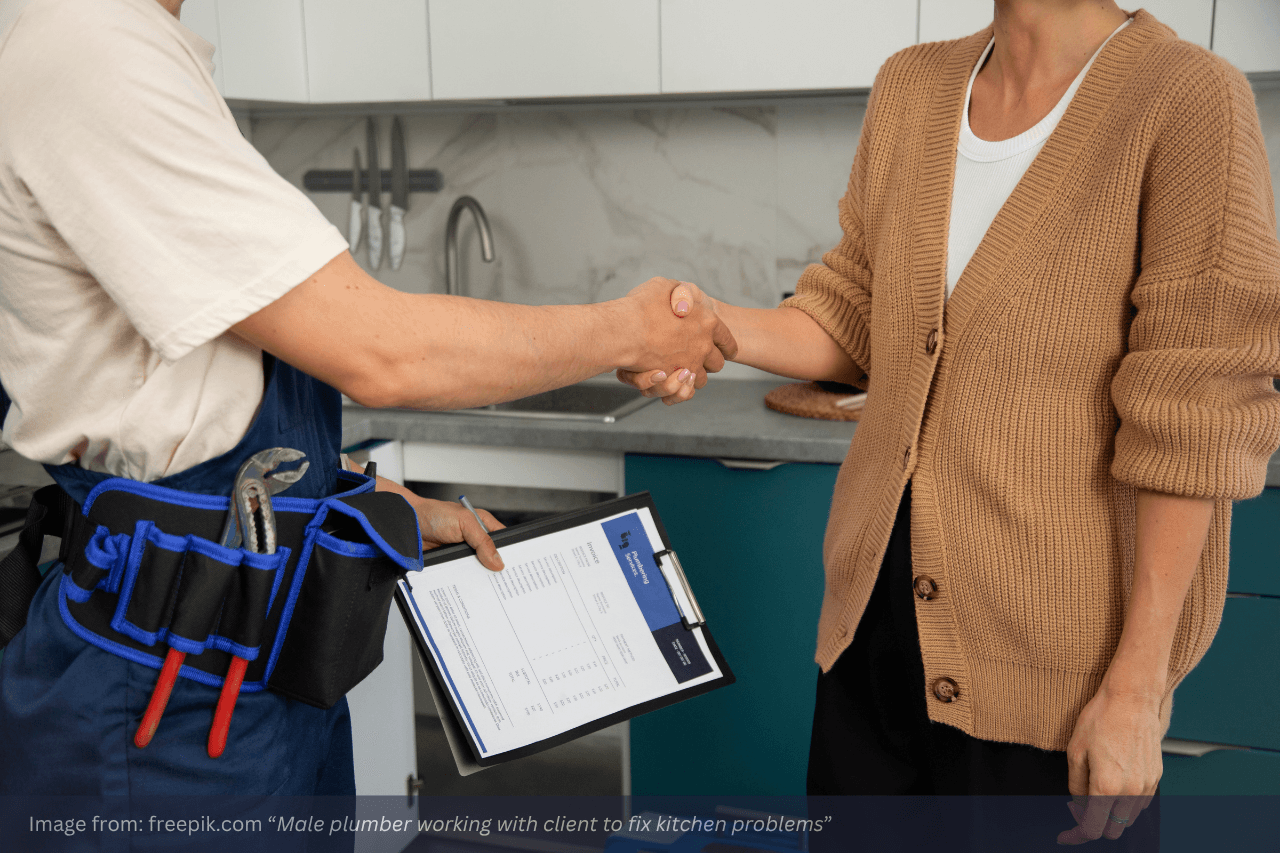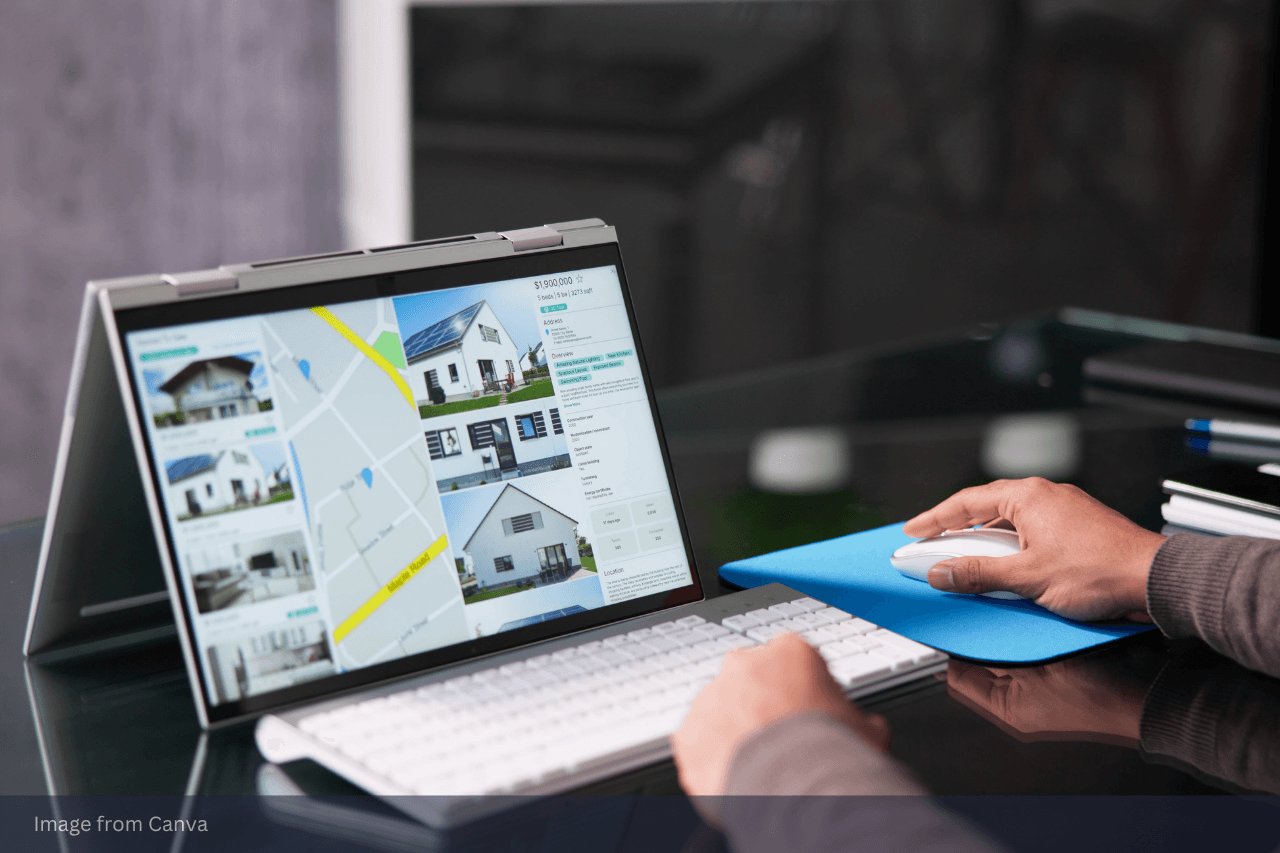Are you planning to buy your first house?
The increasing number of households and growing demand for housing are exerting significant upward economic pressure on UK house prices according to Property Industry Eye. This can make the path to homeownership financially challenging for new home buyers.
But there is a silver lining. According to Yahoo Finance, the government and the Bank of England are making it easier to secure a mortgage through the "Helping Hand" programme. First-time buyers with a single income of just £30,000 (down from £35,000) can take advantage of this offer and use it to secure their property investment.
For couples, the combined income requirement has been reduced to £50,000 (from £55,000). This opens the door for more people to enter the property market.
This guide to buying your first home goes beyond initial financing, as this article highlights vital checks every first-time buyer should know and provides actionable steps to navigate how to buy a house for investment to finally unlock the door to their first home.
- What are the Benefits for First-Time Buyers in the UK?
- How to Buy Your First Home: A Step-by-Step Guide
- Prepare Your Finances
- Search for Your Ideal Home
- Make an Offer
- Secure a Mortgage
- Start the Legal Process
- Exchange Contracts
- Complete Home Purchase and Move In
- Unlocking the Doors to Your First Property Investment
- How to Buy Real Estate: Frequently Asked Questions
What are the Benefits for First-Time Buyers in the UK?
It is easy for an individual to feel daunted when entering the property market and competing against seasoned homebuyers and investors. However, the position of a first-time buyer is, in fact, one of the strongest an individual can hold when purchasing a house.
To help individuals understand the support available to them, this how to buy an investment property guide will explore some of the most beneficial schemes and advantages for first-time buyers in the UK.
Stamp Duty Land Tax Relief
According to the Berkeley Group, Stamp Duty is a tax charged on property or land purchases in England and Northern Ireland. This applies to both residential and commercial transactions that go over a specific price.
This brings up an important question: Does this obligation apply to all homebuyers? Fortunately, first-time buyers benefit from Stamp Duty Land Tax (SDLT) relief.
For individuals who already own property, SDLT is applied to any additional residential purchase priced above £125,000. For instance, purchasing a £150,000 home would incur a 2% tax on the £25,000 portion above £125,000, resulting in an SDLT bill of £500.
In contrast, first-time buyers are exempt from SDLT. They pay no SDLT on residential properties valued at £300,000 or less, a mortgage broker, John Charcol, highlights.
However, if the purchase price is above £500,000, first-time buyer relief is no longer applicable, and standard SDLT rates are charged.
| Purchase Price | Stamp Duty Rate |
|---|---|
| Up to £300,000 (first-time buyer threshold) | 0% |
| £500,000 and above | No relief, must pay at normal rates |
Half-Price Homes with the First Homes Scheme
The First Homes Scheme is another benefit that allows novice buyers in England (only) to purchase properties for 30% to 50% below their market value.
Money Saving Expert states that this initiative comes with specific eligibility criteria, often prioritising key workers, residents, and those on lower incomes.
A significant condition of the First Homes Scheme is that the discount remains attached to the property in perpetuity. This means that when a First Home is sold, it must be offered to another eligible first-time buyer at the same percentage discount relative to its market value at the time of sale. This ensures the ongoing affordability of these homes for future generations of first-time buyers.
Savings Accelerated with a Lifetime ISA
A Lifetime ISA (Individual Savings Account) can significantly enhance a first-time buyer’s deposit. Open to individuals aged 18 to 39, it allows up to £4,000 in annual savings, which can be used towards purchasing a first home (valued up to £450,000) or for retirement purposes.
The government then contributes a 25% bonus, potentially adding up to £1,000 to their savings each year. This beneficial scheme can be utilised even if a first-time buyer is considering other initiatives such as the First Homes scheme, Shared Ownership, or Right to Buy.
Even so, a crucial condition for using this scheme is the 12-month rule. An individual must wait at least 12 months after their initial payment into the Lifetime ISA before accessing the funds, including the government bonus, for a property. Withdrawing earlier, or for non-approved reasons, incurs a 25% penalty.
See Also: 8 Tips For Managing Your Wealth According To Finance Experts
How to Buy Your First Home: A Step-by-Step Guide
Thinking of stepping onto the property ladder? This home buying guide provides first-time buyers a kickstart on how to buy a house for investment.
1. Prepare Your Finances
Before first-time buyers even consider viewing properties, it is crucial to understand the financial commitments involved. Knowing what to expect can help determine how much is realistically affordable—not just for the purchase price, but also for ongoing costs.
Here’s a breakdown of the main financial considerations:
Mortgage
A mortgage, as explained by NatWest, is a form of financing used to purchase property. For example, if a buyer has £20,000 in savings and wishes to buy a home worth £300,000, they would need to secure a mortgage to cover the remaining £280,000.
As this step centres on financial preparation, a relevant question arises: What costs are associated with securing a mortgage?
One key expense is the mortgage repayment—the regular payment made by the borrower to the lender (i.e. bank or building society). The repayment amount is determined by factors like: loan size, interest rate, and repayment term.
Additionally, securing a mortgage often involves upfront costs, such as arrangement fees and other setup charges.
Deposit
Defined by Lloyds Bank, the deposit is the money paid in advance by the buyer to secure their desired home.
This leads to a vital question: How much deposit do you need for a house?
The necessary deposit amount usually varies depending on the property's value and the purchaser's financial standing. Generally, acquiring a home necessitates a deposit ranging from a minimum of 5% to 10% of the property's cost.
Other Upfront Costs
Apart from mortgage and deposit, there are several other upfront costs that first-time home buyers should be aware of. These include, but are not limited to:
- Conveyancing Fees (Solicitor's Fees): Legal costs for handling the transfer of property ownership, including searches and Land Registry fees.
- Moving Costs: Expenses related to physically moving belongings, such as removal company fees or packing materials.
- Property Transaction Tax: A government tax on property purchases, known as Stamp Duty Land Tax in England and Northern Ireland, Land and Buildings Transaction Tax in Scotland, and Land Transaction Tax in Wales. First-time buyer reliefs may apply depending on the region.
- Survey Fees: Cost for an independent inspection of the property's condition to identify potential issues.
Ongoing Expenses
As a homeowner, handling ongoing expenses is a routine part of property management. These commonly cover the following:
- Insurance policies (like buildings and contents insurance)
- Occasional repair
- Routine maintenance
- Utilities (like electricity, gas, and water)
Planning for these recurring costs early on is essential to maintaining long-term financial stability and avoiding unexpected strain after moving in.
Also Read: Your Ultimate Guide to Strategic Financial Planning
2. Search for Your Ideal Home
Searching for a home with no defined criteria is akin to sailing without a compass. In this context, setting clear requirements is crucial for efficiently identifying properties that align with their specific needs, preferences, and financial capabilities.
Outlined below are essential points to guide first-time buyers in finding the right home.
- Amenities: Identify local facilities, such as shops, supermarkets, healthcare services, parks, gyms, and leisure facilities.
- Budget: Define the maximum affordable purchase price, including deposit, mortgage payments and associated upfront and ongoing costs.
- Location: Consider areas based on lifestyle, work commute, and proximity to family or friends.
- Property Condition: Assess whether individuals prefer a move-in ready home or are open to a fixer-upper, as this impacts both financial and time resources.
- Property Type and Size: Determine whether a house or flat, and consider factors, such as parking and overall living space.
- Resale Potential: Consider factors that can affect the property’s future value and ease of sale when buying property for investment.
- Transportation Links: Evaluate the convenience of public transport for commuting to work or school, and access road links for car travel.
After considering what truly makes a home “perfect” with the factors mentioned above, the vital question emerges: Where is the best place to buy first home in the UK? This buying property guide leads to the best locations in the UK for aspiring homeowners.
Best Places to Buy First Home in the UK
A study by Halifax highlights top UK locations attracting first-time buyers. Cities like Manchester, Leicester, and Dartford stand out for their more affordable property prices compared to London, making them appealing choices for buyers seeking better value without sacrificing lifestyle quality.
As stated by RA Bennett, these cities stand out for their unique advantages:
- Dartford (Kent): Favoured by London commuters for its affordable housing and excellent transport connections to the capital.
- Leicester: Recognised for a dynamic, growing economy fueled by manufacturing, retail, and education, offering plentiful career opportunities and recent major investments.
- Manchester: Known for its affordability and a thriving job market.
3. Make an Offer
Once homebuyers have spotted their ideal home, the next step is to express their interest in securing it by making an offer.
However, before getting carried away by potentially owning that home, Gov.uk highlights the following checks:
- Agreed repairs and checks before completion
- Duration of the lease agreement (if relevant)
- Property Inclusions
- Property Worth
Once extensive research and necessary checks are conducted, the HomeOwners Alliance suggests directly contacting the estate agent to communicate their offer, preferably in writing via email.
For those seeking an advantage or a smoother process, employing a buying agent can be highly beneficial. These professionals offer expert advice, leverage their market knowledge, and strategically negotiate on the buyer's behalf, often accessing properties not yet on the open market.
4. Secure a Mortgage
As previously mentioned, a mortgage is a loan used to purchase a house. Although the process of securing one can be complex, this article focuses on the key considerations that matter most to first-time buyers.
Notably, one of the most asked questions when applying for a mortgage is: What is required to get a mortgage in the UK? Lloyds Bank states that when applying for a mortgage, a lender’s primary concern is to ascertain their ability to repay the borrowed sum.
To determine eligibility, homebuyers must gather essential documentation for lenders to evaluate the following aspects:
- Affordability Assessment: A review of all income vs. outgoings (debts, bills, living costs) to ensure mortgage payments are sustainable.
- Credit History & Credit Score: A check of past financial behaviour, including debts and payment history; a good credit score is crucial.
- Deposit: An upfront cash sum towards the property price; larger deposits often yield better rates.
- Income & Employment Stability: Proof of consistent earnings (payslips, contracts) to show repayment capability.
- Proof of Identity & Address: Valid ID (passport, driving licence) and recent utility bills for verification purposes.
For those asking what types of mortgages are available? Here are the most common options:
- Fixed-Rate: The interest rate remains fixed for an agreed period, typically 2, 5, or 10 years.
- Variable Rate: Rates are subject to change at the lender’s discretion, commonly based on the Standard Variable Rate (SVR), with no predetermined limits. There are three main subtypes:
- Capped- A variable rate with a ceiling to limit how much it can increase.
- Discounted- A rate initially lower than the lender’s SVR for a fixed period, which will increase or decrease as the SVR moves.
- Tracker- The interest rate moves in direct correlation with another rate, usually the Bank of England base rate, causing payments to rise or fall with market changes.
- Ask a lender, mortgage broker or Independent Financial Adviser (IFA).
- Be aware of estate agents' referrals as this may be based on commission. It is wise to compare quotes from various firms.
- Consider online conveyancing firms for more competitive fees. However, a notable caveat is that communication might primarily occur via email or phone, potentially meaning one might not consistently deal with the same individual throughout the process.
- Search online to find solicitors or conveyancers in their local area or the area where they are buying. Pay attention to ratings and reviews from previous clients.
- Seek recommendations from friends, family or colleagues.
- Catalogue all your furniture and belongings. MyAssets offers a complete asset management platform, empowering users to catalogue every physical asset within their property and facilitate decorating space. Whether it’s furniture, electronics, art or collectables.
- Keep detailed records of everything you own. MyAssets allows for detailed record-keeping, including the item's name, type, specific location within the home, and its purchase price.
- Organise all of your paperwork and other important files. Get all your documents secured with MyAssets’ document vault by digitising physical copies of documents, such as property deeds, warranties, and insurance policies, and uploading them to the platform.
- Organise all other assets, from finances to art, and other investments. Use MyAssets to integrate all your financial assets, including cash and banking accounts, other investments, and all their insurance policies.
5. Start the Legal Process
Given that mortgage approval can take time, buyers are advised to begin the legal process—known as conveyancing—simultaneously. As defined by HomeOwners Alliance, conveyancing is the legal procedure that transfers ownership of a property from the seller to the buyer.
Generally, this process is typically handled by a solicitor or licensed conveyancer, who is responsible for: overseeing contracts, conducting property searches, offering legal advice, and handling the transfer of funds to complete the purchase.
In this context, it is highly recommended that first-time buyers hire these legal property specialists, as they make daunting legal complexities manageable. This now leads to the question: How to find a legal property specialist?
Money Helper suggests the following approaches:
6. Exchange Contracts
According to Zoopla, the exchange of contracts signifies that both the buyer and seller have signed a binding agreement for the property sale, with these contracts then formally swapped between their respective solicitors.
Prior to exchanging contracts, buyers must finalise the following:
a. Securing a formal mortgage offer.
b. Transferring the deposit (typically 5% or 10%).
c. Completing house surveys (optional) and legal searches.
d. Going over the contract details with a solicitor.
e. Agreeing on a completion date.
Once accomplished and both parties are satisfied, the contracts are exchanged—legally committing the buyer to the purchase and the seller to the sale.
7. Complete Home Purchase and Move In
The buying a house journey reaches its end on completion day, as the seller transfers legal ownership and the buyer receives the keys.
Although everything's been done, a few key items remain. Tick off this checklist on completion day.
a. Once the completion date is set, it is best to book a removals company early and start decluttering and packing items. Decluttering apps can help ensure nothing is missed.
b. Staying in regular contact with the conveyancing solicitor helps ensure any potential issues are quickly addressed, the mortgage funds are confirmed as received, and the completion statement is reviewed for clarity.
c. Keep all essential documents easily accessible, and back them up digitally to prevent potential loss.
Read More: Best Apps for Organising Your Life and Boosting Productivity
Unlocking the Doors to Your First Property Investment
There are many doors to unlock in the homeownership process, especially for those figuring out how to buy a house for investment. But with the right buying property guide, the journey becomes more manageable.
From planning finances and searching for the right property to navigating legal steps and finally moving in, each stage plays a crucial role in building long-term value.
Even better, first-time buyers in the UK are supported by incentives like Stamp Duty relief, the First Homes Scheme, and the Lifetime ISA—tools that not only ease upfront costs but also make property ownership more accessible.
Ultimately, with a clear, step-by-step approach, buying your first home becomes less overwhelming and more strategic, laying a strong foundation for future investment success.
How to Buy Real Estate: Frequently Asked Questions
1. What is the process of buying your first home in the UK?
Buying an investment property, particularly a house, begins with financial preparation, property search, and making an offer. The process continues with securing a mortgage, completing legal procedures, exchanging contracts, and finalising the purchase before moving in.
2. How much do you need to earn to buy your first house?
Based on the "Helping Hand" mortgage, a single first-time buyer needs to earn at least £30,000 annually. For couples applying together, their combined income must be at least £50,000 to be eligible.
3. How much deposit do I need to buy a first house?
For a first-time home purchase, a minimum deposit of 5% of the property's value is generally required. However, securing a mortgage with a larger deposit, typically 10% or more, is often preferred by lenders as it can lead to more favourable interest rates and a wider range of available mortgage products.
Make Moving to Your First Home Easier with MyAssets
After navigating the ins and outs of buying a first home, the keys are finally in hand, but the real work of settling in begins. From organising essential documents to making sure nothing is left behind at the previous place, every detail matters. This is where home organisation tools like MyAssets prove useful, helping homeowners stay on top of life admin with ease.
Essentially, MyAssets acts as a centralised dashboard for every asset an individual acquires, ensuring all assets are organised and accessible.
Organise, track and manage your property investment with MyAssets' 14 day free trial.






